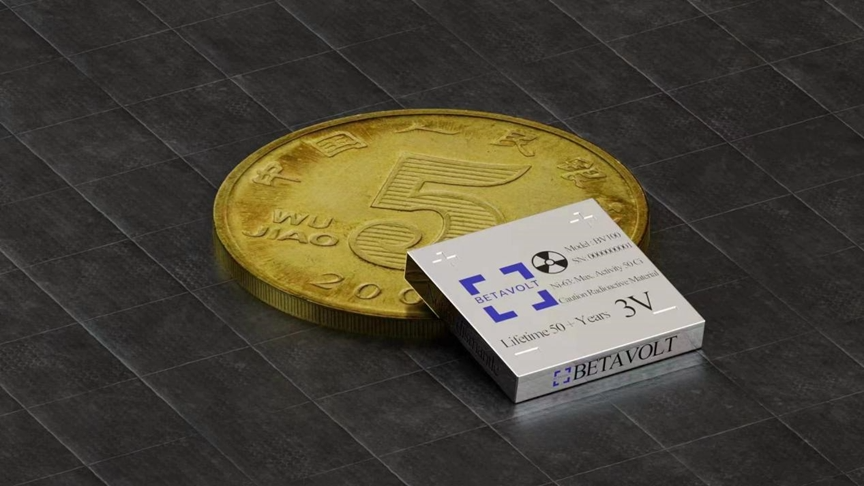
Beijing-based startup Betavolt Technology is in the early stages of developing a groundbreaking nuclear battery for smartphones, aiming to eliminate the need for regular charging. The nuclear batteries, designed to retain a charge for an impressive 50 years, utilize a diamond semiconductor layer and a decaying nickel isotope, avoiding the use of plutonium, a highly radioactive metal.
In a departure from traditional nuclear batteries, Betavolt’s version claims to emit no radiation and lacks toxic elements present in conventional batteries. Safety advantages include the elimination of explosion risks, and the batteries can function effectively in extreme temperatures ranging from -60 to 120 degrees Celsius.
The BV100 module, a compact 15 x 15 x 5mm, contains 63 nuclear isotopes and can deliver a charge of up to 100 microwatts, suitable for modern smartphones. Despite its small size, the nuclear battery provides an impressive voltage of 3V. Betavolt suggests combining multiple batteries for larger devices to enhance power output.
While the project is still in its early phases, Betavolt Technology plans to commence mass production soon. The innovation represents a significant leap in miniaturizing atomic energy batteries, addressing concerns related to radioactivity and toxicity associated with traditional nuclear batteries. Betavolt’s nuclear battery technology has the potential to revolutionize the smartphone industry by extending battery life significantly.
Despite promising developments, widespread availability of this technology for smartphones may take some time. The BV100 module’s capabilities make it versatile for various electronic devices, positioning Betavolt’s nuclear battery technology as a novel solution to the challenge of extending battery life in portable devices. The successful miniaturization of atomic energy batteries showcases a significant breakthrough in the field of energy storage, highlighting innovative materials engineering in battery technology.